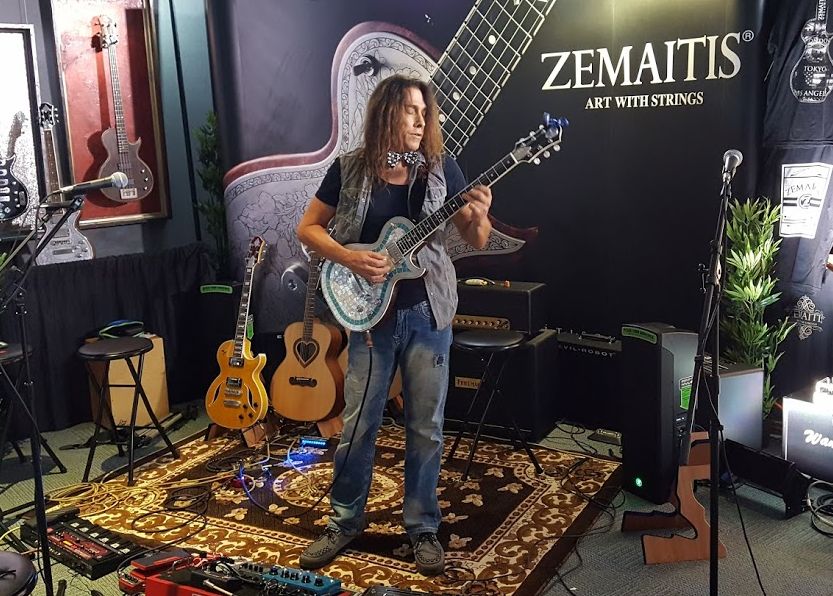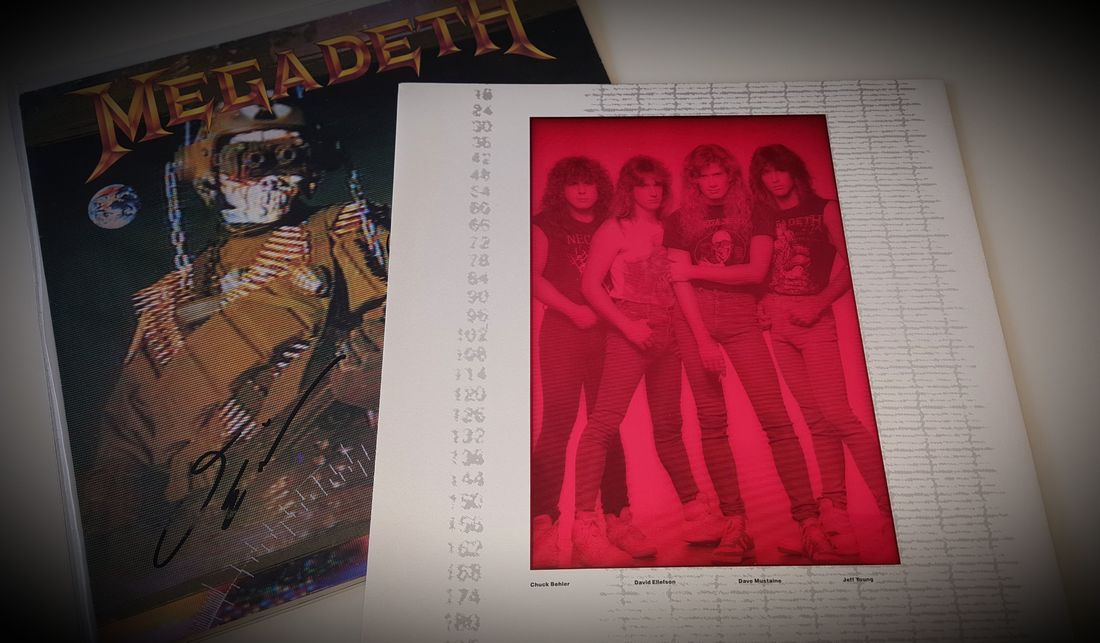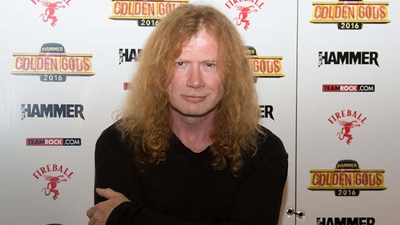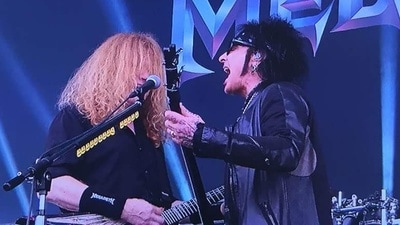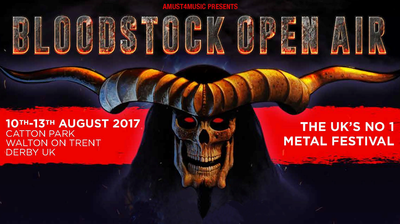|
For a certain generation of metal heads, guitarist Jeff Young needs little introduction. Best known these days for his solo work and ‘Music Without Boundaries’ podcast, the Musician’s Institute graduate was thrust into the limelight when he joined a corrosive Megadeth in 1987. Arriving just in time for the recording of ‘So Far, So Good… So What!’, he joined a band at the height of their excess. With the 30th anniversary of the recording of the disc approaching, we sat down with Jeff for an EXCLUSIVE in-depth chat about the making of a classic, how he got the gig, and its illustrious tour. Into the lungs of hell; Eamon O’Neill.
Hi Jeff, how are you today?
I’m doing okay. I just did a radio show last evening, and I’m getting ready to film a TV show pilot. I’m kind of the musical director for that. It’s called ‘Buds, Blues and Babes’. I don’t think I need to say much more. I think the title says it all. What does your input involve; choosing the tracks, working with the musicians etc? All of the above. You’ve got me, Stu Hamm, Jeff Tortora, Shaun Williamson from Atlanta Rhythm Section, and Dave Matthews’ harmonica player. We’re just doing blues based stuff, like some Stevie Ray Vaughan, ‘Train Kept A Rollin’, stuff like that. Do you enjoy doing things away from what you’re best known for; your 2010 solo album ‘Equlibrium’ for example, was loosely a jazz fusion release? It was kind of a world music fusion; there was a lot of Brazilian influence and flamenco, so it comes off a little jazzy for sure. The concept of that album was to use as little electricity as possible. We made a lot of the instruments ourselves, or instruments that were made by friends who lived in Brazil. If we wanted the sound of thunder, for example, we’d go to a hardware store or wherever we could find a giant piece of plastic, and shake it in front of a microphone. I got to work with a lot of different artists on that, from [bass player] Tony Franklin to some of the best unknown singers. Folks will just have to go check out that album to discover. That ties in nicely with your radio show, which is called ‘Music Without Boundaries’. The basic premise of the show is there no musical genre; as long as it’s got heart and soul. I’ve played music from the 1920s, to the 2000s, from speed metal to classical, and we weave it together with interviews and funny or thought provoking clips from movies. The show just celebrated our sixth year on the air across the planet; six years of interviews with everyone from John 5, to Gilby Clarke, to Steve Hunter and Pat Travers. It’s been a really cool experience to do the radio shows. I’ve learned a lot about music and the business and entertainment. Going back to 1987, and the story goes that it was when your guitar student Jay Reyonlds joined Megadeth, you thought; “I want this gig”.
Yeah, pretty much. Jay Reynolds at the time was living in the Laurel Canyon area, and we had been housemates. I lived upstairs right above him, and I had given him a few guitar lessons. He wasn’t really a regular student or anything, and actually, a few of my riffs ended up on the Malice ‘Licence To Kill’ album, uncredited. But karma happens, and I ended up getting his gig, so there you go! What were your circumstances like at that time? Just after graduating Musician’s Institute, a cassette tape of mine found its way into Barry Levine's hands, and he offered to manage me. He was a pretty interesting cat; he did the album covers for Angel, he did Mötley Crüe ‘Girls, Girls, Girls’ and ‘Shout At The Devil’ album covers, all of that beautiful work. I moved into his house, and it had the benefit that there was a recording studio in the house. It was a house full of musicians; Punky Meadows from Angel and his girlfriend were living there, and Junior [David Ellefson] from Megadeth came in and out. I was so green at the time, I was a straight edge, pretty much. So you already had some loose connection to Megadeth. I had a falling out with Barry, and I moved out and the band followed with me. And this is amazing, I ended up getting a new drummer and it was Mark Poland, who’s Chris Poland’s [Megadeth guitar player whom Jeff replaced] brother. But that has no relation to how I got the gig in Megadeth; he never even mentioned his brother Chris to me, and never once spoke about Megadeth. A few months went by, and I just decided to call Barry and bury the hatchet, so to speak. He was living in an apartment behind Sunset Boulevard, and I was just sitting at his kitchen table and I was about to leave, and the phone rang. He answered it and he goes; “Well this is so weird, I haven’t seen him in months and he’s sitting right here”, and he handed the phone to me, and it was Jay Reynolds, and he was all cryptic: “I got something to talk to you about; can you come over here right now?” So you headed over to see what he wanted? I stopped at his place and he said he’d pay me fifty bucks an hour to help him a) write solos for what was to become ‘So Far, So Good… So What!’, and b) to help dissect Chris Poland’s solos off ‘Peace Sells’ and ‘Killing’, and whatever stuff they were going to do on tour. All it was to me was just another teaching gig. What I didn’t know was the lessons weren’t going to happen at his house, and I guess, fortunately for me, they took place down at the Music Grinder recording studio where they were recording the album. I was in a side studio with him, which gave the opportunity for Ellefson and [drummer Chuck] Behler to hear me. It was mostly those two; I didn’t really see Mustaine throughout the entire recording process. He was in the halls one day, and wasn’t very friendly, to be honest. Do you remember what the first song you worked on with Jay for ‘So Far, So Good… So What!’ was? ‘Hook In Mouth’ was the first song. I wanted to do some kind of Michael Schenker-ish, ‘Flight Of The Bumblebee’ vibe. I started coming up with that solo that’s kind of got a jig, but it’s like a violin part. For me, I thought that would be easy, but actually it’s pretty hard to play. Even to this day, I have to really practice to keep it up. So Jay was struggling, and they’d walk through the room and see me playing it, and see him struggling. How much were you pinning on getting that gig?
To be honest, I was about weeks, months away from just hanging it up and maybe moving out of L.A. I don’t know what I was going to do, but I wasn’t feeling the vibe with the musicians in L.A. I thought they weren’t about music, they were more about sex, drugs and rock and roll, and I came more from the Randy Rhoads, Steve Morse school of playing where it’s more about practice your instrument and be cool. But I remember I went to a rodeo, of all things, and I was driving home talking to my friend, saying that very thing, and I came in, looked at my answering machine, and the light was blinking, and it was a message from Mustaine; he said; “Hey, I want to talk to you tomorrow, can you come down early?” And the rest is history. What was it that made you want to take the job? Chris Poland still to this day, is one of my favourite players that ever lived. I think he’s like a modern Django Reinhardt meets Allan Holdsworth meets Jeff Beck. That’s really the reason I took that gig, just to have the honour to be able to sit there and dissect his solos and step into his shoes. The music wasn’t necessarily my frequency, although I liked it and I saw the musicality and the potential of it. There’s all types of different time sequences and syncopation. I was getting into flamenco and Paco De Lucia, and oddly enough - and it just shows how music is the same - in flamenco we have that E to F progression that you hear at the end of ‘Set The World Afire’. It’s very similar, it’s that phrygian harmonic minor, and it just works perfectly. Megadeth were at the height of their excess in 1987; did you ever stop to think; “What am I letting myself in for?” Toto, we’re not in Kansas anymore, I can tell you! Anyone can easily find the stuff online about when Dave said he sang my solos to me and Marty Friedman. He didn’t sing any of our solos to any of us; let’s be real, right there. He wasn’t in the studio a minute or a second, when I was recording, and Paul Lani, who was the producer, wasn’t even there a lot. They left me with two kids; they had an assistant named Matt Freeman, who was like the second engineer at the studio, and Mustaine’s guitar tech, whose name was ‘Gadget’. He was the one who tweaked my amp, and I wasn’t real happy, as they thinned it out a lot. What was the first thing that you actually recorded for ‘So Far, So Good… So What!’? Basically, how it went down, I met Mustaine that afternoon. I remember it was a Wednesday, and we took a walk on Melrose, and he handed me a cassette, and it was about sixty seconds of ‘In My Darkest Hour’. He played it for me; “Okay, start ‘here’, and end right there. Here’s the cassette, I’ll see you tomorrow”! I took it home that night and I just improv’d and I got a skeleton sketch. I came in the next day, and I was kind of shy, and I remember I turned my back to the mixing board and to everyone in the room. I think Ellefson and Chuck Behler and Paul Lani and Matt Freeman and Gadget were there. I just did a few takes, and they loved it and said; “Okay, that’s killer, come back tomorrow”. They gave me another tape, and I think I did ‘Hook In Mouth’ because I already been writing that for Jay, and I did ‘Liar’ the same day. So you only got to hear short pieces of the songs before recording? I’d go in and they’d go; “here’s another 45 seconds, start here, end there”, so you didn’t know the lyrics. When you do a solo, you normally like to know what the lyrics are about, like ‘Mary Jane’; it would have been nice to know that it’s about a witch. It turns out the solos I improv’d worked with the vocals and what the song’s about. So that was the tracking of the album; I just did a solo every day. Did you only record solos, or did you do rhythm tracks as well?
I did rhythms on ‘Into The Lungs Of Hell’, ‘In My Darkest Hour’, ‘Hook In Mouth’, ‘Anarchy In The UK’. I did all the acoustics on ‘Mary Jane’ – I think I used a six string and a twelve string – and Dave did the electric on that. I did rhythm guitar on ‘Mary Jane’ too. How long in total did you spend working on the album? It was two weeks, because they had to have the album done. I came in at the last second. It was two weeks, and then you’re on tour, because, literally they had to hand the album in and go out on tour. Were there any other tracks recorded for the album that didn't appear on it? They had [a cover of] ‘Problems’ [by Sex Pistols], and I was totally trying to push Mustaine to use ‘Problems’ instead of ‘Anarchy’. I just thought ‘Problems’ was more Megadeth, and it was darker. I thought it was more appropriate. With the album completed, were you officially a member of Megadeth? It wasn’t like; “Hey, you’re in the band”. Actually, I had to do a West Coast tour. They wanted to not just know that it was going to be cool in the studio; they wanted to know it was going to be cool live. So we did this little West Coast tour, and then after that we flew over and did ‘Christmas On Earth’ over in the UK with Testament and Overkill. Once the tour proper began, the band played an infamous show in Northern Ireland where Dave Mustaine’s words incited a riot. It was weird, because the first picture that pops in my mind when you say ‘Ireland’, is tanks on the streets. It was the first time we ever saw that kind of a martial law, or militant state of affairs. That was shocking. We were twenty-something kids, ignorant, and I think he didn’t understand the implications or the context of what he was saying; he just thought he was being cool. He wasn’t trying to be controversial; I think he was trying to be positive and he didn’t understand the context of what it was all about. Did you sense things kicking off, as you stood there on the stage? No, we were just playing, and all of a sudden, I don’t even remember how they stopped us, I just remember we went into a song, and then suddenly someone came on the stage; “You gotta get out”. The biggest show on that tour was at the Donnington Monsters Of Rock festival in the UK.
That’s the biggest audience I’ve ever played for. It was near 110,000, and the bill was Iron Maiden, Kiss, David Lee Roth with Steve Vai, Megadeth. Guns ‘N’ Roses opened for us, and Helloween opened the festivities. It was short, and that was also the last show I played with them. We’d played big shows before, but this was like looking at the ocean, only instead of water, there was people everywhere you look, and they were coming from every direction. What was it like stepping out onto that stage? I remember the day. It was rainy, and it was a surreal day because I didn’t know it was going to be my last gig. Slash comes out in the morning with a bottle of Jack Daniels to get on the bus when we’re all going over, and it’s like; “Okay, he’s not just acting, the cat’s really drinking Jack Daniels at ten in the morning”. Of course we got there and it was mind blowing. There’s pictures of Mustaine and Slash and Lars [Ulrich] and Axl and me standing around. What do you remember about your actual performance that day? As we were about to take the stage, the sun came out. I remember the funniest thing; I went to do like a Pete Townsend knee slide across the stage in ‘Anarchy’. Lucky it was the last song, but I didn’t stop to think the stage had rubber padding on it, and I don’t know if you’ve ever tried to do a knee slide on rubber padding, but you stop flat, and face plant. Our booking agent, I saw him laughing on the other side of the stage. The tour ended that day. There were supposed to be five more shows on that tour, and that’s when they made up the little white lie about Ellefson fracturing his wrist so they could hop a plane back to L.A. and score on the pronto. What happened next? Ellefson got clean pretty quick, and we started writing riffs for ‘Rust In Peace’. It started at Mustaine’s house; Ellefson and me in a bedroom on an eight track. By the time we were done we were over at Ellefson’s new place. He’d got a beautiful new apartment, and he was really pulling it together and getting positive. I would have loved to have stayed for at least that one more album, because we’d already been rehearsing ‘Holy Wars… The Punishment Due’ and ‘Polaris’, and some of the other riffs at sound checks. How did your time in Megadeth come to an end? There’s a lot of disinfo online, and in his [Dave Mustaine’s] book of lies. What happened was, when we were writing the stuff, the cat was freebasing 24/7, and I don’t know if you or the readers have ever been around someone in that state, but they suffer from paranoid delusions. So everything that you’ve heard from that era in the press is coming from that state of mind. The straight up is; I was excited. I had two songs that I’d written, and everyone in the whole camp had heard. It was just a drum machine, and Ellefson put the bass and it was just rhythm guitars, but we had skeletons of songs. I’m actually going to finish one and put it on my instrumental album. I’ll let people which riffs were from that era. So how exactly did your exit happen? I called Mustaine and said I was going to take the demos over. I wanted to be cool and make sure he wasn’t threatened, because someone in that state is already fragile. I said; “Hey Dave, I’m going to come over and play the demos of these two songs. Everybody seems to dig them”. I was trying to be super, ultra, sensitive and I put it as delicately as I could, I said; “Just listen to the stuff. If you feel it’s cool, and you want to flesh it out, work on it, that’s cool. If you don’t, maybe it will work on another album, or I’ll save it for an album sometime down the line, I’ll use it on a solo album. Don’t worry about it man, there’s no pressure”. What I was trying to say was, my feelings aren’t going to be hurt if you don’t want to use the songs. But when he heard me say ‘solo project’, the phone just went dead for a minute, and I was like; “Dave?”, and he goes; “What, so you’re threating you’re going to quit the band and go do a solo album if I don’t use your songs?!” It was that kind of stuff, so at a certain point, I just went and got my equipment. Surely you were no angel during that period yourself? No, I tried it, I snorted it. They weren’t shooting heroin when I was in the band, they were snorting it. I tried it because Chris Poland and Gar [Samuelson, original Megadeth drummer] were jazz musicians, and Chris looked up to Miles Davis and a lot of these jazz cats, and they wanted to put themselves in that headspace. I don’t know how Chris played like he did being that out of his mind. But he’s a brilliant player, so I snorted some, I tried it. But I don’t have an addictive personality, so I wasn’t down with that stuff. I didn’t smoke pot, I don’t like cocaine, and I didn’t drink before a show. Like, I’ll smoke some ganja now, but back in that era, it just wasn’t what time it was for me. Do you feel proud of your time in Megadeth? Yeah, overall, it’s pride, but I remember moments standing on stage where your lead singer’s drugged out of his mind and on a rant when you’ve only got a 45 minute opening set, and James Hetfield and Lars Ulrich are standing on the side of the stage, and you’re standing there in the dark saying; “I practiced 14 hours a day and I’m standing here in front of 30,000 people and I’m ashamed to be here on the stage with this guy”. So the experience was cool but it’s marred. But it’s served me well to this day. The band is such a brand, and that album is in that window; ‘Peace Sells’, ‘So Far, So Good… So What!’ and ‘Rust In Peace’, it’s kind of like the trilogy. My thing is; successful people focus on opportunities, and don’t dwell on the problems or the issues, so I always try to look at all the best stuff about it, and not worry about the rest. Did you keep up with what was happing with the band after you’d left? A little bit. I was kind of out of my element in that band. I didn’t quite fit; like one of these things just doesn’t belong. But I tried to be cool, and I got along cool with Ellefson, and I got along with Chuck until his girlfriend sold my washer and drier when we were out on tour. I was keeping it at their house and she sold it for blow money. Then you’ve got to be in the band with the guy after that! You’ve got to show up for work and be like; “Hey buddy, I’m glad to see you. Your chick sold my appliances, but hey”. *Laughing* Do you ever see any of those Megadeth guys now? I’ve bumped into Ellefson at NAMM. Chuck’s fallen off the face of the earth. He’s actually a fugitive from the law for some kind of offenses; the more things change, the more they stay the same. Back to the present day, and you’re working with Zemaitis guitars.
Yeah, I’m sitting here looking at two brand new beauties right here. I’ve got a beautiful acoustic, and a mother of pearl electric guitar that Dave Hager of Zemaitis bestowed upon me. We’re going to be doing a lot of stuff together. They make amazing guitars. Everyone loves that amazing historical footage with Hendrix in the white room with the twelve-string guitar playing ‘My Train A Comin’; that’s a Zemaitis guitar. Ron Wood plays them, and Gilby Clarke plays them. Each one of them is a work of art, handmade and different from the other. You’re also working on a solo album right now. Yeah. ‘Monsoon’ is probably the song I’m proudest of, if anyone said; “What’s the song you’d put in your time capsule” , that would be it. That’s just one of five or six, and it will be on my forthcoming EP. Finally, next year sees the 30th anniversary of the release of ‘So Far, So Good… So What!’; If Dave Mustaine wanted to reform that line-up for a series of shows, would you do it? Yeah, I don’t have to hesitate. I don’t know that that would ever happen, because, first of all Kiko [Loureiro, current Megadeth guitarist] is a buddy of mine. We are friends, and he’s been on my radio show. He’s super sweet, and I think he’s great in the band. But, that album was great, and do you know how hard it is to make money in the music business right now? I think I’d have to jump at that tour, and I’d have to be a big boy, regardless of the history between us. For me, it would be about the music and the fans, just doing it to honour that album. Like this interview? Like us on Facebook and follow us on Twitter for regular updates & more of the same. Jeff Young's 'Music Without Boundaries' airs every Monday evening. For more information, or to listen back, click HERE. |
|
Jeff Young
" I was kind of out of my element in Megadeth. I didn’t quite fit; like one of these things just doesn’t belong."
© 2016 - 2024 eonmusic.co.ukContact: [email protected]
|

